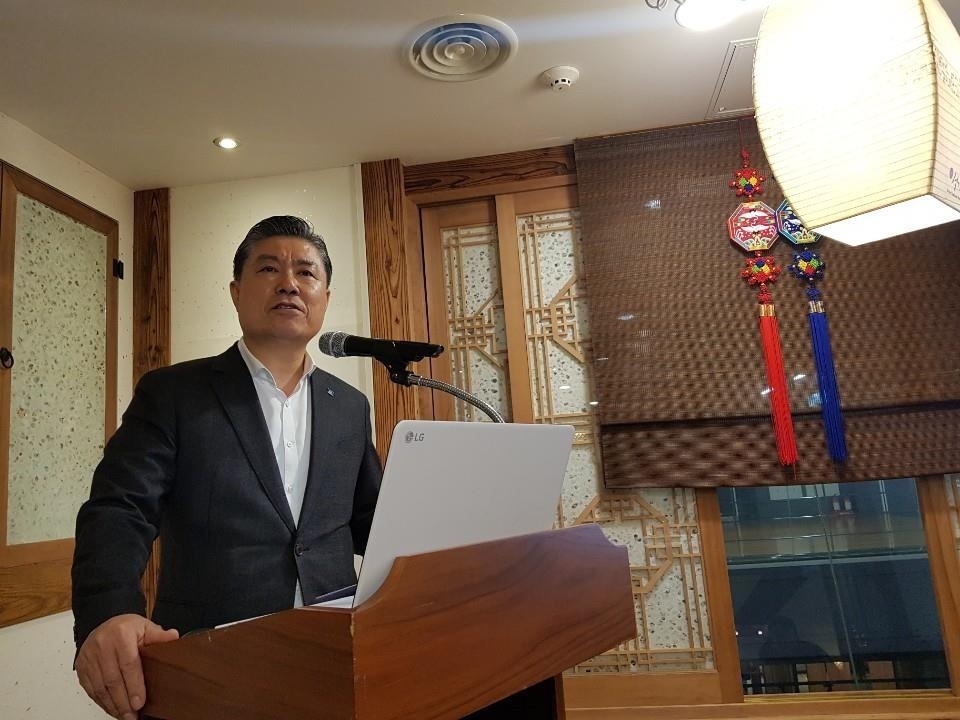 |
Tata Daewoo President and Chief Executive Kim Bang-shin (Yonhap) |
Tata Daewoo Commercial Vehicle Company Ltd., the South Korean unit of Indian carmaker Tata Motors Ltd., said Tuesday it will strengthen its truck lineup to revive sales in Korea.
Tata Daewoo will launch at least three light truck models weighing 2.5 tons to 3.5 tons per vehicle to achieve a market share of 30 percent in the domestic light truck market in the next five years, Tata Daewoo President and Chief Executive Kim Bang-shin said in a press conference.
"We are planning to launch our light truck models which have better quality by 10 percent and lower prices by 10 percent compared to truck products made by Hyundai Motor to penetrate into the local light truck market," he said.
The president said the company is also considering adding a liquefied natural gas-powered light truck to the lineup.
Currently, the country's light truck market, with annual sales of 10,000 units, is dominated by South Korea's leading automaker Hyundai Motor. Hyundai claims more than 90 percent of the market, with Japan's Isuzu Motors Ltd. and China's Beiqi Foton Motor Co. accounting for the remainder.
In Korea, Tata Daewoo has sold medium trucks weighing 4.5-8.5 tons and heavy trucks weighing 8-25.5 tons, competing with bigger rivals, such as Hyundai Motor and imported commercial brands, such as MAN, Mercedes-Benz, Volvo Trucks, Scania and Iveco.
The country's medium and heavy trucks markets shrank last year due to lower demand from construction companies and logistics firms, Kim said.
"Our market share in the medium and heavy truck markets fell to 22-23 percent from 30 percent in 2016 and 2017. We are aiming to boost sales by diversifying our truck lineup in coming years," he said.
Tata Motors acquired a 100-percent stake in the automotive business unit of now defunct Daewoo Group in April 2004 and changed the name into Tata Daewoo.
Tata Daewoo is headquartered in Gunsan, 270 kilometers south of Seoul, and has a 23,200 unit-a-year plant and exports trucks to over 60 countries.
The company's didn't provide any earnings figures or sales numbers for the 2019 fiscal year that ends in March, or year-ago figures. (Yonhap)




![[Herald Interview] 'Trump will use tariffs as first line of defense for American manufacturing'](http://res.heraldm.com/phpwas/restmb_idxmake.php?idx=644&simg=/content/image/2024/11/26/20241126050017_0.jpg)


![[Health and care] Getting cancer young: Why cancer isn’t just an older person’s battle](http://res.heraldm.com/phpwas/restmb_idxmake.php?idx=644&simg=/content/image/2024/11/26/20241126050043_0.jpg)
